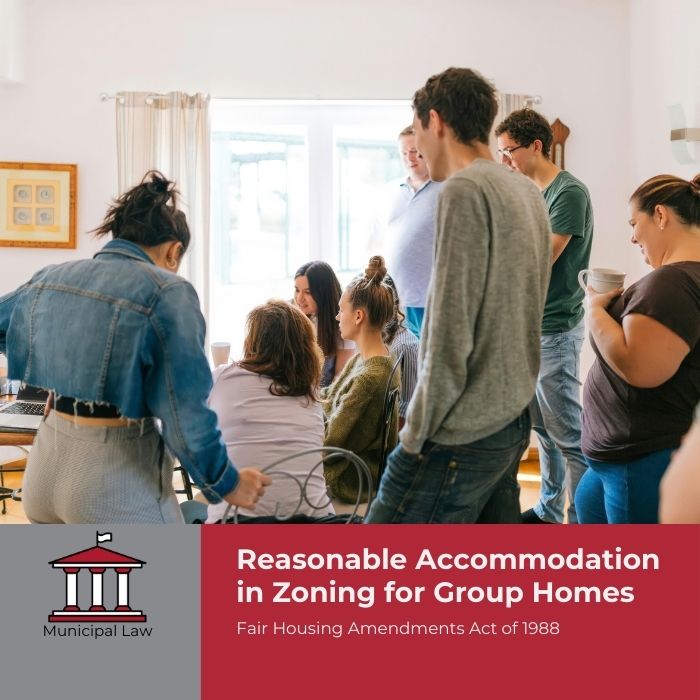It’s Not Fair- Group Home Zoning Ordinances
Written by Charles Rausch

When it comes to group homes in residential districts, many zoning ordinances limit the number of individuals that can reside in the home. These limits can run afoul of the Fair Housing Amendments Act of 1988 (FHA) if those residents are “handicapped.”
This was the case in Ronald Yocca v. Turtle Creek Zoning Hearing Board and Borough of Turtle Creek, 2025WL2177619 (Pa. Cmwlth. 8/1/25). The Borough had a typical zoning provision that allowed by special exception a group home in a residential district provided that the group home housed no more than three individuals. Yocca operated a sober recovery house for up to seven individuals in drug and alcohol recovery. Yocca applied for a special exception or a reasonable accommodation under the FHA. The zoning hearing board denied Yocca’s request for a special exception because the number of residents was more than double the three permitted under the ordinance. The request for a reasonable accommodation was also denied since the group home special exception provided adequate accommodation. Yocca appealed to the trial court arguing that the residents should be treated as a “family” under the zoning ordinance, or that the residency limit should not apply. The trial court upheld the zoning hearing board’s denial of the special exception, and upheld the board’s finding that Yocca was not entitled to a reasonable accommodation under the FHA since the residents of the property did not meet the definition of a “family” under the zoning ordinance.
Yocca then appealed to the Commonwealth Court. The Commonwealth Court found that the zoning hearing board correctly denied the special exception since the number of proposed residents was more than double what was allowed under the ordinance. However, the Commonwealth Court went on to address whether Yocca should be granted a reasonable accommodation under the FHA. The Commonwealth Court found that the determination of whether or not the residents constituted a “family” under the zoning ordinance was not the proper focus. The proper focus was whether Yocca was entitled to a reasonable accommodation under the FHA. The Commonwealth Court found that the zoning hearing board and the trial court failed to follow the applicable framework under the FHA in considering whether a reasonable accommodation should be granted. First, it is undisputed that addiction is a disability that is covered under the FHA. Second, while the FHA does allow restrictions on the maximum number of occupants, those restrictions can only be based on space (i.e. square footage) and must be applied neutrally to all residents of a zoning district.
The FHA requires an applicant requesting a reasonable accommodation to first show that the accommodation is necessary. To establish that an accommodation is necessary, an applicant must show that such accommodation is necessary for the facility’s financial viability or that it would serve a therapeutic purpose. If the applicant demonstrated that an accommodation is necessary, then the burden shifts to the municipality to prove that the accommodation is unreasonable by imposing financial or administrative burdens or undue hardship on the municipality or requiring a fundamental alteration of the zoning program.
In this case, the testimony showed that allowing only three residents would make the facility financially unfeasible. Also, residents would have a better chance at recovery if they were living within a recovery community. Since there was no fact-finding by the zoning hearing board or the trial court as to whether Yocca had shown that the request for a reasonable accommodation was necessary or that the request was unreasonable, the Commonwealth Court remanded the matter back to the zoning hearing board to make those findings in accordance with the FHA.


